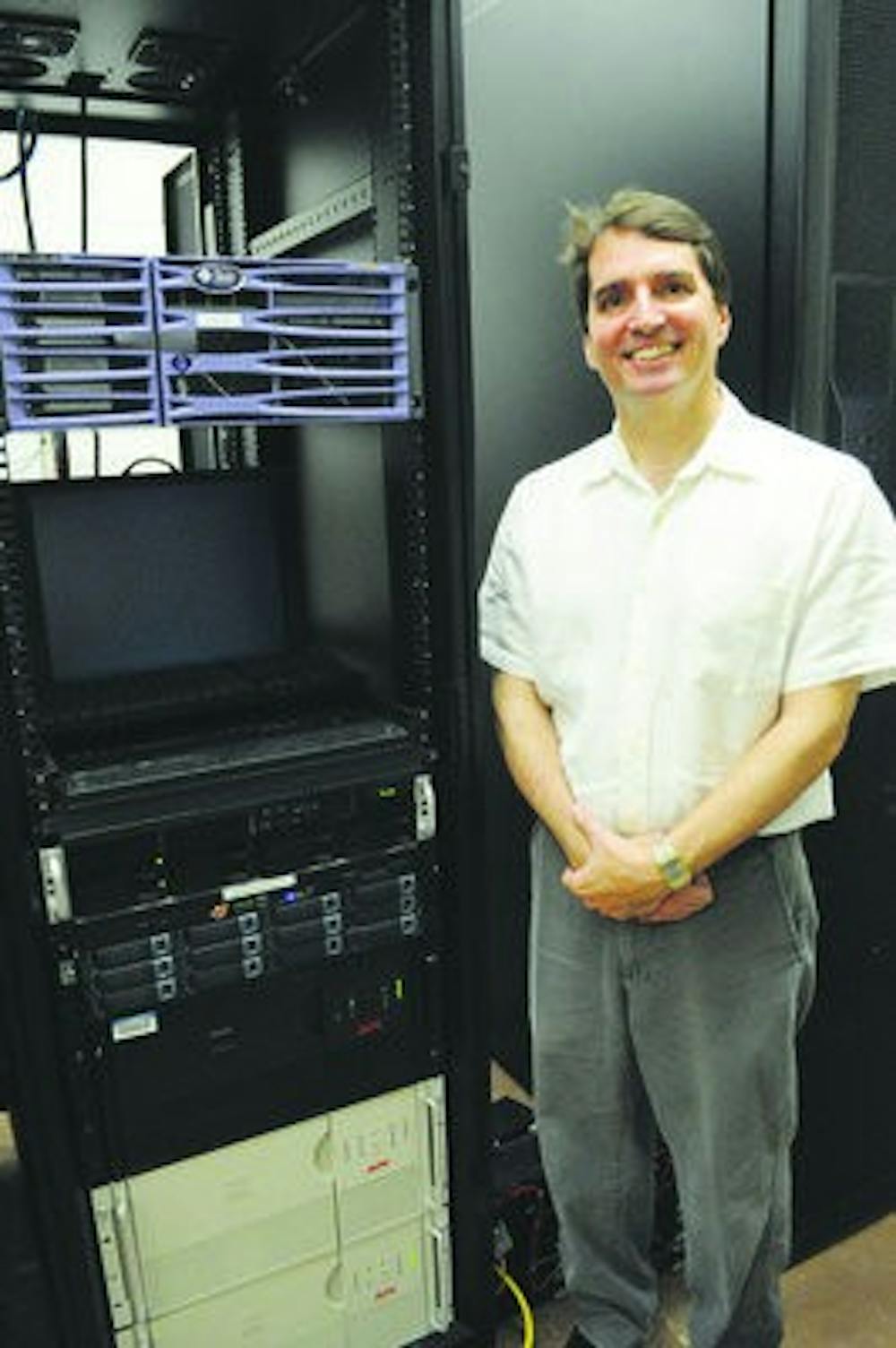Auburn researchers, in collaboration with the Antihydrogen Laser Physics Apparatus team in Geneva, Switzerland, are helping make breakthroughs in the study of antimatter material and its properties.
Francis Robicheaux, professor of theoretical atomic physics at Auburn, has been working with ALPHA, an international collaboration of experimentalists and theorists, for the past six years along with student assistant Patrick Donnan, sophomore in physics and music performance.
"I'm a theorist and I'm mostly doing calculations," Robicheaux said. "We do calculations to say, 'Here is what you should expect to see if you are to do certain operations.' It kind of helps the experiment to know what you might want to try to make antihydrogen so you can hold on to it."
For every type of matter identified in the universe, there exists an equal, but oppositely charged, form of matter called antimatter. When the two meet they are destroyed in a burst of energy, making the study of antimatter difficult.
ALPHA's purpose is to trap and study antihydrogen atoms, the antimatter counterpart of the simplest atom. The experiments are conducted at the European Organization for Nuclear Research, or CERN's, particle physics lab using vacuum tubes and powerful electromagnetic fields.
Robicheaux said he works with different formulas to calculate the conditions necessary to capture antihydrogen atoms to study their properties. He sends them off to CERN headquarters, where the experimentalists take over.
"We are a small part of the project, and even though we aren't experimentalists we can still help out," Robicheaux said.
Robicheaux said his, Donnan's and the ALPHA team's research was published in the most recent edition of Nature magazine.
"In some ways this is just what we do," Robicheaux said. "It just so happens that for some reason antimatter is a lot sexier than something else, so it has caught other people's attention. In some ways this is just practice for research scientists."
The article focuses on the steps the group has taken to make the first measurements of antihydrogen properties.
"It's a really big deal to get a Nature publication," Donnan said. "I was super excited about that. It's the second publication I've gotten with (Robicheaux). It's the highlight of my scientific career so far for sure."
Donnan said the experience of working with the ALPHA team has been beneficial.
"It was really a lot of fun to work in a group where theorists were working hand-in-hand with experimentalists," Donnan said. "You learn what their limitations are and what you have to do to accommodate that. We are like a support team for them."
Robicheaux said he makes a trip to ALPHA's lab every summer to witness some of the experiments and toss around new ideas.
"We teleconference all the time, but if you are actually hanging out with the people and having a beer or pizza you find out what is actually important to them or what calculations may be most crucial at that time," Robicheaux said.
Jeffrey Hangst, professor of physics and astronomy at Aarhus University in Denmark and ALPHA researcher, has been working at CERN on antimatter research since 1993.
"The focus of my research has been to produce, trap and begin to measure the properties of the atom antihydrogen," Hangst said.
Hangst said their research would be a monumental breakthrough if they were to discover any discrepancies with the current school of thought.
"If we find that antihydrogen is even slightly different in its behavior than hydrogen, that would be a small revolution that would require all of the textbooks to be re-written," Hangst said. "If they are the same in all the ways that we can measure, it would be consistent with the basic ideas that we have about the nature of space and time."
Do you like this story? The Plainsman doesn't accept money from tuition or student fees, and we don't charge a subscription fee. But you can donate to support The Plainsman.





